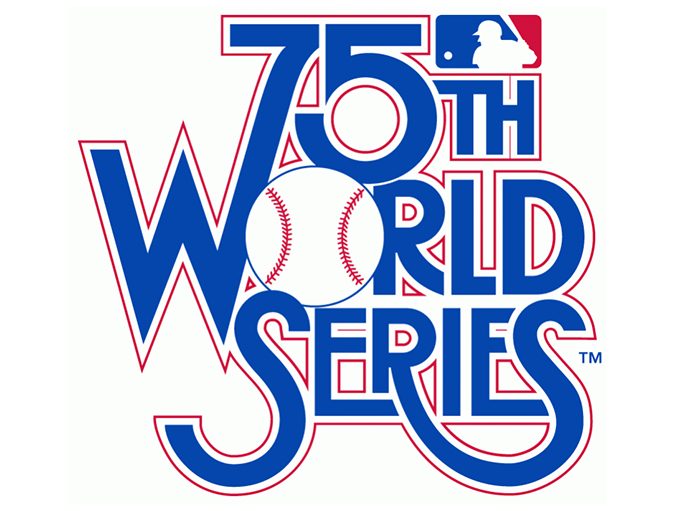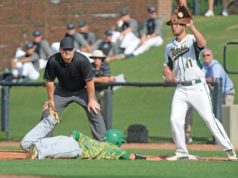Reggie Jackson earned the nickname Mr. October because of his bat. But a baserunning play swung the 1978 World Series in favor of Jackson’s New York Yankees. Did Jackson intentionally move his hip into a throw? Or was he just in the right spot at the right time?
It has often been said that a World Series can turn on one play. Among countless examples are Kirk Gibson’s dramatic home run in 1988, the Jim Leyritz homer in 1996 and Scott Spiezio’s seventh-inning home run in the 2002 Series, which helped the Angels overcome a five-run deficit and propel them to a seven-game win over San Francisco.
However, one of the most controversial plays occurred in game four of the 1978 World Series between the Los Angeles Dodgers and the New York Yankees. Los Angeles won the first two games at Dodger Stadium, including an impressive 11-run, 15-hit opening game victory. In the Dodgers’ 4-3 victory in the second game, Ron Cey provided the power with a three-run homer.
The Yankees won game three, 5-1, scoring three runs in the sixth on four hits. The Yanks were hoping to tie the Series at two apiece in game four. The Dodgers were leading, 3-0, thanks to Reggie Smith’s round-tripper in the fifth. With one out in the bottom of the sixth, New York’s Reggie Jackson singled in a run. With Roy White on second and Jackson on first, Lou Piniella hit a sinking line drive to the left of shortstop Bill Russell.
Then came the play that is still debated today.
Russell couldn’t handle the liner, but managed to field it on a hop and touch second ahead of Jackson for the force out. However, Russell’s throw to first hit Jackson, who was standing in the baseline. Munson scored to make it 3-1 and Piniella held on at first. Whether Jackson turned away from the throw or moved his hip toward the ball is a contentious issue. The first question was whether Russell deliberately dropped Piniella’s liner. Second-base umpire Joe Brinkman, working his first Series, wasn’t sure. “I really couldn’t say one way or the other,” Brinkman said. “If you slow it down you could possibly say that it was intentional, but I felt very comfortable about the call.”
From his viewpoint down the leftfield line, Bill Haller thought Russell was up to something. “I assumed he intentionally dropped the ball, but nothing happened,” Haller recalled. “Nobody said anything about that.”
Attention then shifted to Russell’s throw to first baseman Steve Garvey. The throw seemed to be on target until it hit Jackson, who was standing in the basepath. Garvey may have been able to run the ball down in short right field sooner, but he was busy arguing the play with first-base umpire Frank Pulli.
As reported by Bob Verdi of the Chicago Tribune, Pulli said, “The key to the play was whether it was intentional. I knew the ball hit Reggie, but from my angle it didn’t look like he moved in such a way to disrupt the throw.
“I really believe he was confused,” Pulli continued. “If he thought he was out for sure and no longer involved in the play then why, after it was all over, was he heading back to first base thinking he was safe?”
No sooner had the ball bounced off Jackson than Dodger Manager Tom Lasorda made a beeline for Brinkman. After a short but heated exchange with the second-base umpire, he turned his full attention to Pulli. “That was a mistake,” Haller said. “He should have gone to Brinkman.”
It was a good thing Lasorda did not go to Brinkman for an explanation. “My mind was preoccupied with the catch, no-catch decision on Russell,” Brinkman remembered. “I was not looking for interference, but nothing popped out that it was interference.”
Plate umpire Marty Springstead was merely an interested spectator. “I was the last person on the field who could have helped,” Springstead recalled. “A guy in the upper deck had a better look. I will say this: I have never seen anybody intentionally get hit by a thrown ball. That thing hurts.”
“I will say this: I have never seen anybody intentionally get hit by a thrown ball. That thing hurts.”
“It was a crazy play,” Haller said.
“They don’t forget that stuff, do they?” Springstead agreed. “They have been showing that play for early 33 years and we still haven’t solved it.”
Also on the crew were Ed Vargo at third and John Kibler on the right-field line. Both are deceased.
New York went on to tie it in the eighth after Paul Blair scored on a single, a sacrifice and Thurman Munson’s double to left. The game went to extra innings. After Goose Gossage retired LA in the top of the 10th, the Yankees struck for the winning run when Piniella’s single scored White for a 4-3 victory.
Game five was a 12-2 wipeout that put the Yankees one game away from their 22nd world championship. That came two days later at Dodger Stadium.
The Dodgers jumped to a quick lead on Davey Lopes’ solo homer in the first. However, the Yankees took the lead for good in the top of the second on three hits, a walk and an error. When it was all over, New York won, 7-2.
Although it’s been more than three decades since the incident, the memory is still fresh in the mind of Lasorda. On June 26, 2010, in a game at Dodger Stadium, Fox television invited Jackson and Lasorda to the booth. What started out as good-natured ribbing, took a nasty turn when the subject of game four of the ’78 World Series came up.
Lasorda accused Jackson of being a liar for saying he didn’t intentionally interfere on the controversial play. Jackson came back with a zinger: “Hey, I wouldn’t be Mr. October if it weren’t for the Dodgers.” Jackson hit 10 home runs in five World Series, nine of those against Los Angeles.
Jackson came back with a zinger: “Hey, I wouldn’t be Mr. October if it weren’t for the Dodgers.”
Lasorda also told broadcaster Joe Buck he wished a pitcher had hit Jackson in the head. Seeing the exchange going south, Buck tried to inject a little humor by saying the two were just joking around and tried to rescue the moment by inviting them to shake hands, but Lasorda refused. Jackson, however, hugged him.
Cey summed up the feelings of his teammates. “The interference issue with Reggie Jackson was the one that pulled the rug right out from under us and that’s still my biggest nightmare in baseball. If the call is made properly and if they (the umpires) huddled together like they should have, we would have walked off the field with a 3-0 lead. We end up losing that game. The next day we were flat, deflated. And so I feel legitimately that ’78 was the one that got away and it’s still hard to talk about.”
The play changed the game and the series. Instead of the Dodgers going up three games to one, the Series was tied. Momentum shifted. The Yankees outhit the Dodgers, 29-16, and outscored them, 19-4, in the final two games.
Haller’s memory of the Series was not the infamous play, but of the teams. “Both were terrific clubs,” Haller remembered. “They were both well managed, but I was surprised at the way the Dodgers played.”
Jackson was used exclusively as a designated hitter. He played in all six games, went nine for 23 for a .391 average, hit two home runs, had eight RBIs and one controversial hip check.
Photo caption: Umpire Frank Pulli calls to crewmate Joe Brinkman to initiate a conversation regarding possible interference by Reggie Jackson (second from left). The umpires ruled that Jackson did not interfere, a call that stirs debate three decades after it occurred.
What's Your Call? Leave a Comment:
Note: This article is archival in nature. Rules, interpretations, mechanics, philosophies and other information may or may not be correct for the current year.
This article is the copyright of ©Referee Enterprises, Inc., and may not be republished in whole or in part online, in print or in any capacity without expressed written permission from Referee. The article is made available for educational use by individuals.





















